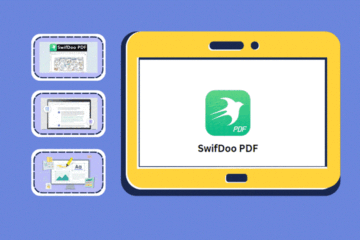Post Preview
Key Takeaways:
- Virtual sales assistants streamline sales processes and enhance productivity.
- They offer innovative strategies for improving customer engagement.
- Integrating virtual sales assistants can lead to substantial revenue growth.
Table of Contents:
- Streamlining Sales Processes through Automation
- Enhancing Customer Engagement with Personalization
- Leveraging Data Analytics for Smarter Decisions
- Optimizing Time Management for Sales Teams
- Reducing Costs with Efficient Operations
Streamlining Sales Processes through Automation
In today’s fast-paced business environment, efficiency is the cornerstone of success. Adopting a virtual sales assistant is a strategic move that can streamline sales processes significantly. These digital allies are adept at handling repetitive tasks, such as data entry, managing schedules, and follow-ups, allowing human intelligence to concentrate on strategic tasks like client engagement and closing sales deals. By automating these responsibilities, businesses can ensure that tasks are carried out consistently and accurately, significantly reducing human errors that could disrupt sales flow, thus enhancing overall operational precision.
Virtual sales assistants’ true value is magnified when integrated with existing Customer Relationship Management (CRM) systems. This seamless integration ensures that all customer interactions and data are harmonized into a cohesive workflow, dramatically enhancing productivity. Having immediate access to updated information empowers sales teams to strategize more effectively based on real-time insights. Such a system allows for more dynamic decision-making, aligning sales efforts with the latest market trends and client needs. Businesses that embrace this level of integration can expect smoother transitions and increased conversion rates, which ultimately positively impact profitability. Companies maintain a competitive edge in the marketplace by leveraging the seamless convergence of automation and data through virtual assistants.
Enhancing Customer Engagement with Personalization
One of the unparalleled benefits of employing a virtual sales assistant is its ability to enhance customer engagement through personalization. Utilizing artificial intelligence and machine learning, these assistants can delve into customer data to uncover behavioral patterns, preferences, and purchase histories, providing insights that enable sales representatives to tailor their approaches. Tailored interactions mean more meaningful engagements, as the communication is crafted specifically to meet the customer’s unique needs, elevating the overall customer experience.
Personalization transforms customer satisfaction from an aspirational goal into an achievable reality. When customers sense that they are understood and valued, it strengthens their affinity for the brand and enhances loyalty. Whether through personalized marketing materials, targeted recommendations, or customized service encounters, virtual sales assistants empower businesses to make every customer interaction impactful. This level of personalized engagement improves the immediate sales prospect and builds a long-lasting relationship, fostering increased client retention and creating brand advocates who drive further sales through referrals. In a marketplace where consumer choice and expectations have never been higher, the ability to deliver tailored interactions enhances both customer loyalty and competitive positioning.
Leveraging Data Analytics for Smarter Decisions
In the contemporary business landscape, the importance of data analytics is undeniable, especially when harnessed by virtual sales assistants. These digital aides collect and analyze vast pools of data, unveiling patterns and forecasting trends that provide sales teams with a strategic advantage. Transitioning to data-driven decision-making places foresight and innovative thinking at the heart of sales operations.
Virtual sales assistants facilitate real-time analytics, offering instantaneous feedback on sales strategies and market dynamics, allowing businesses to remain agile and responsive. This capability enables sales teams to adjust tactics swiftly based on current insights, capitalizing on emerging opportunities, and responding to market changes effectively. The agility enabled by real-time data ensures businesses can anticipate shifts in customer preferences and adapt to them, ensuring their offerings remain relevant and competitive. By continuously refining their strategies based on authentic data, sales teams enhance their immediate performance and build a robust framework for long-term success. As businesses navigate ever-evolving markets, those that leverage data analytics effectively are better positioned to innovate and capture market share, driving sustainable growth and profitability.
Optimizing Time Management for Sales Teams
Time management is critical for sales success, and virtual sales assistants are crucial in optimizing how time is allocated and used. By tackling administrative tasks and organizing schedules, these assistants free sales professionals to foster client relationships and advance negotiations, resulting in more closed deals. The shift enables teams to focus on high-value activities, vital for executing effective sales cycles and nurturing leads to fruition.
Additionally, virtual assistants can prioritize tasks and send timely alerts to ensure that sales opportunities and crucial activities are noticed. By alleviating the burden of mundane responsibilities, virtual assistants decrease stress levels and reduce burnout among sales staff, creating a healthier working environment. This optimization boosts morale and enhances productivity, as team members are positioned to engage enthusiastically and pursue goals with renewed vigor. Maintaining such balanced workloads is pivotal in reducing turnover and cultivating a culture of continuous improvement within the sales team. As virtual assistants streamline the operational aspects of sales, they empower teams to focus on strategic objectives, forging a direct path to achieving remarkable sales results.
Reducing Costs with Efficient Operations
Virtual sales assistants offer remarkable financial benefits, particularly in reducing operational costs. Automating tasks traditionally requiring manual labor saves businesses significantly on staffing and associated costs. These financial savings can then be redirected towards strategic growth initiatives, allowing companies to innovate and expand their reach without compromising service quality.
Beyond direct cost savings, virtual assistants streamline processes, eliminate inefficiencies, and reduce errors associated with manual operations. This efficiency translates to sustainable operations where resources are deployed with maximum effectiveness. As technology-driven solutions become more advanced, the cost advantages offered by virtual sales assistants are expected to grow, solidifying their position as an indispensable asset within modern business strategies. By optimizing costs, businesses are better positioned to invest in areas that drive future growth, ensuring long-term profitability and success. The cumulative effect of reduced expenses, increased efficiency, and strategic reinvestment creates a powerful dynamic that supports the current operational framework and future business ambitions. As companies harness these financial benefits, they gain the agility to respond to emerging opportunities and challenges, navigating industry landscapes with confidence and foresight.



